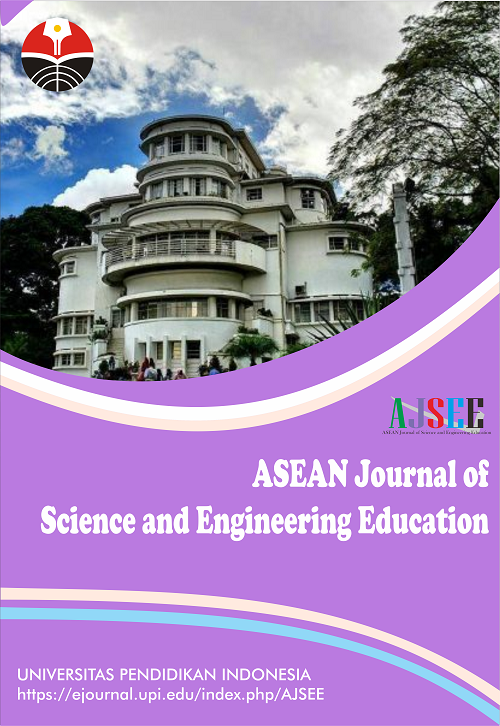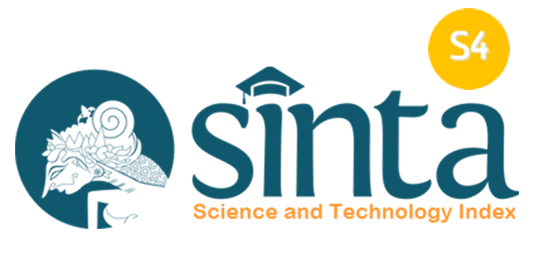Effect of Reversed Jigsaw Instructional Strategy on Pupils Academic Achievement in Mathematics
Abstract
The study examined the effect of reversed jigsaw instructional strategy on pupils’ academic achievement in Mathematics. The study adopted a quasi-experimental research design. Two public primary schools were randomly selected to participate in the study. One validated and reliably tested research instrument titled ‘Mathematics Achievement Test’ (MAT) was used. The reliability index of MAT was determined using Pearson Product Moment Correlation (PPMC). Two research hypotheses were formulated and tested at a standard level of significance with an Analysis of Covariance (ANCOVA). The findings of the study revealed that treatment had a significant effect on pupils’ academic achievement in mathematics. However, the interaction of treatment and gender did not have any significant effect on pupils’ academic achievement. Based on the findings, it was concluded that reversed jigsaw instructional strategy can improve the academic achievement of pupils. Based on the conclusion, it was recommended that teachers should be trained in the use of the strategy.
Keywords
Full Text:
PDFReferences
Abubakar, R. B., and Uboh, V. (2010). Breaking the gender barrier in enrolment and academic achievement of science and mathematics students. Akoka Journal of Pure and Applied Science Education AJOPASE, 10(1), 203-213.
Agu, P. A., and Samuel, I. R. (2018). Effect of reversed jigsaw, TAI cooperative and guided discovery instructional strategies on basic science and technology students’ interest and achievement. International Journal of Innovative Education Research, 6(2),19-26.
Amani, S. J., Vahedi, S., Fathi, A. E., and Abidi, L. (2019). The effect of reversed jigsaw classroom on university students' academic performance and statistics anxiety. Educational Psychology, 15(52), 133-153.
Aransi, W. O. (2018). The influence of school types, class classifications and gender on academic achievement in Economics among high school students: A comparative analysis. International Journal of Progressive Science and Technologies, 8(2), 120-128.
Aronson, E. (2002). Building empathy, compassion, and achievement in the jigsaw classroom. The Social Studies, 93(6), 274-279.
Awodun, A. O., and Oyeniyi, A. (2018). Influence of school location on student’s academic achievement in junior secondary school basic science in Ekiti State, Nigeria. Journal of Emerging Technologies and Innovative Research (JETIR), 5(6), 125 – 129.
Babatunde, D. (2019). A comparative study of upper basic science students’ academic performance in public and private school in Taraba State Nigeria. Journal of Research in Humanities and Social Science, 7(3), 26 – 31.
Isa, S. G., Mammam, M. A., Badar, Y., and Bala, T. (2020). The impact of teaching methods on academic performance of secondary school students in Nigeria. International Journal of Development Research, 10(7), 37382-37385.
Jameel, H. T., and Ali, H. H. (2016). Causes of poor performance in mathematics from teachers, parents and student’s perspective. American Scientific Research Journal for Engineering, Technology, and Sciences (ASRJETS), 15(1), 122-136.
Kabutu, F. R., Oloyede, O. I. and Bandele, M. F. (2015). An investigation into the achievement of junior secondary school students taught integrate science using the cooperative learning strategy in Nigeria. European Journal of Physics and Chemistry, 7(2), 63-73.
Kingdom-Aaron, G. I., Etokeren, S., and Okwelle, C. (2019). Effect of cooperative learning strategy on biology students’ academic performance in senior secondary school in rivers state. Journal of Scientific Research and Reports, 23(6), 1-11.
Kumwenda, B., Cleland, J. A., Walker, K., Lee, A. J., and Greatrix, R. (2018). The relationship between school type and academic performance at medical school: A national, multicohort study. BMJ Open 2017, 7(8), 1-12.
Ma, X., and Chen, C. (2018). Effectiveness of the reverse jigsaw teaching method on students’ motivation, engagement, and learning in mathematics classes. International Journal of Mathematical Education in Science and Technology, 49(1), 1-12.
Maitra, R., and Staisloff, R. (2017). The reverse jigsaw: A cooperative learning strategy to enhance student engagement in higher education. Journal of College Science Teaching, 47(5), 64-71.
Makondo, P. V., and Makondo, D. (2020). Causes of poor academic performance in mathematics at ordinary level: A case of Mavuzani high school, Zimbabwe. International Journal of Humanities and Social Science Invention (IJHSSI), 9(6), 10-18.
Mayorga, D. L. A., Medina, J. E. L., and Santos, C. F. (2020). Reversed jigsaw vs. conventional method: Effects on critical thinking and academic achievement. Education and Information Technologies, 25(1), 531-546.
Molla, E., and Muche, M. (2018). Impact of cooperative learning approaches on students’ academic achievement and laboratory proficiency in biology subject in selected rural schools, Ethiopia. Education Research International, 18(1), 1-9.
Nnamani, S. C., and Oyibe, O. A. (2016). Gender and academic achievement of secondary school students in social studies in Abakaliki Urban of Ebonyi State. British Journal of Education, 4(8), 72-83.
Obafemi, K. E. (2022). Alternative method of teaching social studies in primary schools: reciprocal teaching as the panacea. International Journal of Academic Multidisciplinary Research (IJAMR), 6(9), 444-448.
Obafemi, K. E., Fajonyomi, A. A., and Ola-Alani, E. K. (2023). Effect of jigsaw IV instructional strategy on pupils’ academic achievement in mathematics in Kwara State, Nigeria. International Journal of Academic Pedagogical Research (IJAPR), 7(1), 48-52.
Oni, J. O. (2014). Teacher method of teaching and student academic achievement in basic science and technology in junior secondary schools in south-west, Nigeria. Journal of Education and Social Research, 4(3), 397-402.
Osokoya, M. M. (2013). Teaching methodology in basic science and technology classes in south-west Nigeria. Asian Journal of Education, 1(4), 206-214.
Pirmohamed, S., Debowska, A., and Boduszek, D. (2017). Gender differences in the correlates of academic achievement among university students. Journal of Applied Research in Higher Education, 9(2), 313-324.
Samuel, I. R., and Sambo, M. H. (2019). Effects of peer tutoring and reversed jigsaw instructional strategies on senior secondary school science students’ interest and achievement in Katsina State, Nigeria. International Journal of Innovative Social and Science Education Research, 7(1), 1-7.
Yaduvanshi, S., and Singh, S. (2018). Effect of informal cooperative learning on biology achievement on learners of diverse ability. The Online Journal of New Horizon in Education, 8(2), 30-40.
DOI: https://doi.org/10.17509/ajsee.v3i3.56744
Refbacks
- There are currently no refbacks.
Copyright (c) 2023 Universitas Pendidikan Indonesia

This work is licensed under a Creative Commons Attribution-ShareAlike 4.0 International License.














